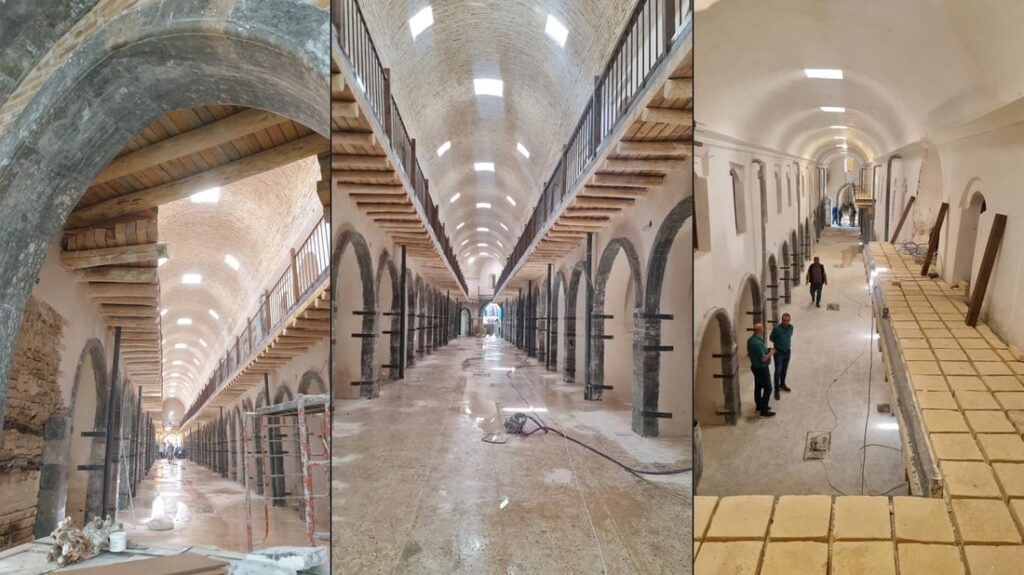The Iraqi Budget, and the Stock Market's Next Move

By Ahmed Tabaqchali, Chief Strategist of AFC Iraq Fund.
Any opinions expressed are those of the author, and do not necessarily reflect the views of Iraq Business News.
Iraq Market Report: The Budget, and the Stock Market's Next Move
The market, as measured by the Rabee Securities RSISX USD Index, was up 2.3% for the month, and up 21.5% for the year.
The market's solid performance, on the back of last month's super performance enhanced by a revalued currency, underscores the underlying strength of the market's recovery that is in the process of looking through and discounting the currency's volatility as discussed here recently. The market's technical picture continues to be positive, and it is currently moving to the upper end of its 35-month up-trending channel (chart below).
The macroeconomic fundamentals discussed here last year support the view that this uptrend will likely remain in force; however, its upward slope might moderate or even go sideways as it begins to discount the implications of the government's proposed expansionary budget over the next few weeks.
RSISX USD Index versus Average Daily Turnover
(Source: Iraq Stock Exchange, Rabee Securities, AFC Research, data as of March 30th)
The government's long-awaited 2023 budget proposal, finally submitted to parliament for review in mid-March, was more expansionary than discussed here a few months ago. It would likely result in meaningful liquidity injections into the economy as a consequence of the oversized role of the government's role in the economy as the largest formal employer and driver of the non-oil economy - all of which result in an efficient and direct transmission mechanism of oil revenues into the real economy.
The government is proposing to increase federal current expenditures by 22.8% in 2023 over 2022 representing a liquidity injection of 14.4% to 2022's estimated federal non-oil GDP, with public sector salaries increasing by 15.0%, social welfare by 7.3%, government spending on goods and services by 22.7%, and others - which include on-going special projects and the new administration's projects - by 101.9%. (Note: federal excludes the Kurdistan Region of Iraq 'KRI', details in table below, and notes at the bottom of this newsletter).
2023 Budget Proposed Spending versus 2022 Actual Spending
(Source **: Ministry of Finance (MoF), IMF, AFC Research, data as of April 5th)
The government's planned non-oil investment spending for 2023 is equally meaningful, and potentially far-reaching, which could add a further 13.2% liquidity injection to the non-oil economy, enhancing the liquidity injections of the government's current expenditures. However, given the government's historically low execution rate in investment spending and its capacity constraints, it is unlikely that most of this planned spending will materialize.
As such, it will be its planned current expenditures, in the form of the public sector payroll, social security, and spending on goods and services, that will kickstart the country's economic rebound following an uncertain year marked by political conflicts following the surprising 2021 parliamentary elections as discussed here in the last few months. Moreover, since the budget proposal was submitted to parliament in mid-March, it will take a few weeks for parliament to debate it, before passing it into law. As such, given the slow machinery of government execution, the positive effects of the liquidity injection will likely take place in the second half of the year, which could magnify its effects.
Ultimately, a liquidity injection of this magnitude will feed into meaningful growth in corporate profits, which in turn will provide the impetus for the market's next move. The year-to-date performance of the market, as measured by the RSISX USD Index, signifies the diversification benefits of the Iraqi equity market which has a low correlation with global markets, especially during this period of global market volatility and macroeconomic uncertainty. Furthermore, the index is still 54.5% below its 2014 peak and shows solid signs of recovery - all of which indicate that its risk-reward profile is very attractive compared with most global markets (chart below).
Normalized Returns for the RSISUSD Index vs MSCI World Index, MSCI Emerging Markets Index and MSCI Frontier Markets Index
(Source: Bloomberg, data as of April 2nd)
Notes and Sources:
* The 2023 budget proposal includes a meaningful allocation in 2023 for the share of the Kurdistan Region of Iraq (KRI) in the federal budget. These payments were not made for most of 2022 due to the disputes between the Federal Government of Iraq (GoI) and the Kurdistan Regional Government (KRG), and thus the analysis here focuses only on the federal (i.e., ex KRI) allocations to allow for meaningful comparisons between projected federal spending in 2023 versus actual federal spending for 2022. The analysis assumes that the KRI's non-oil economy accounts for 15% of the country GDP. The allocation for the KRI will have a significant impact on the KRI's non-oil economy, with positive spill overs over the country's economy overall, however, it's not possible, as of now, to make an assessment as the KRG has not released a budget since 2013.
** Sources: (1) 2023 figures : The Council of Minister's 2023 budget proposal; (2) 2022 figures: Ministry of Finance Open Budget Documents; (3) Non-oil GDP figure for Iraq-ex KRI, assumes that the KRI economy accounts for 15% of Iraq's 2022 non-oil GDP estimates as provide by IMF's Country Report No. 23/75.
*** An upcoming series of pieces will review the budget in more detail.
Please click here to download Ahmed Tabaqchali's full report in pdf format.
Mr Tabaqchali (@AMTabaqchali) is the Chief Strategist of the AFC Iraq Fund, and is an experienced capital markets professional with over 25 years' experience in US and MENA markets. He is a Visiting Fellow at the LSE Middle East Centre, Senior Fellow at the Institute of Regional and International Studies (IRIS), and a Senior Non-resident Fellow at the Atlantic Council. He is also a board member of Capital Investments, the investment banking arm of Capital Bank in Jordan.
His comments, opinions and analyses are personal views and are intended to be for informational purposes and general interest only and should not be construed as individual investment advice or a recommendation or solicitation to buy, sell or hold any fund or security or to adopt any investment strategy. It does not constitute legal or tax or investment advice. The information provided in this material is compiled from sources that are believed to be reliable, but no guarantee is made of its correctness, is rendered as at publication date and may change without notice and it is not intended as a complete analysis of every material fact regarding Iraq, the region, market or investment.






